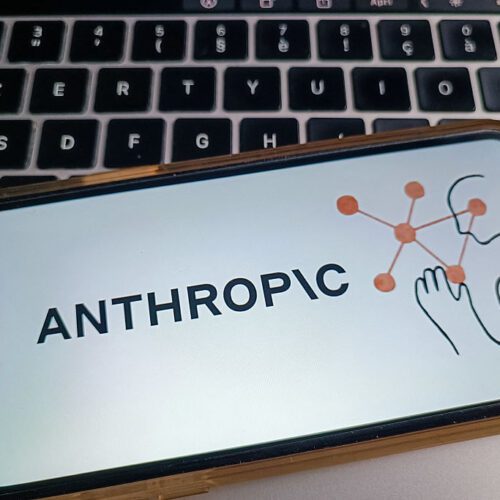
authors celebrate historic settlement coming soon in anthropic class action: Authors are celebrating a “historic” settlement expected to be reached soon in a class-action lawsuit over Anthropic’s AI training data. This case has drawn significant attention in the tech and literary communities, as it addresses the complex intersection of artificial intelligence and copyright law.
Key takeaways
- The settlement is anticipated to be filed for preliminary approval by September 5.
- US District Judge William Alsup has confirmed that both parties believe they have reached a settlement in principle.
- The lawsuit is considered the largest copyright class action in history, with potential claims from up to 7 million authors.
- Three authors initiated the suit, which questions the legality of Anthropic’s data collection practices.
On Tuesday, US District Judge William Alsup confirmed that Anthropic and the authors involved in the lawsuit “believe they have a settlement in principle.” The parties are expected to file a motion for preliminary approval of the settlement by September 5. This development marks a significant milestone in a case that has captured widespread attention due to its implications for the future of AI and copyright law.
The lawsuit was initiated by three authors: Andrea Bartz, Kirk Wallace Johnson, and Charles Graeber. They allege that Anthropic illegally downloaded their works, among many others, to train its AI models. The case was certified by Judge Alsup as a class action, allowing up to 7 million authors to join in the lawsuit. This unprecedented scale has raised alarms among many in the AI industry, who have expressed concerns about the ramifications of such a legal challenge.
Background of the lawsuit
The legal dispute stems from the broader conversation about how AI models are trained and the ethical implications of using copyrighted material without permission. As AI technologies advance, the methods of gathering training data have come under scrutiny. Authors and content creators are increasingly concerned about their intellectual property rights in an age where AI can generate text, images, and other forms of content based on existing works.
Anthropic, a prominent AI research lab, has been at the forefront of developing advanced language models. However, the company has faced backlash over its data collection methods. The authors claim that their works were used without consent, raising questions about the legality of such practices under copyright law. The lawsuit has highlighted the need for clearer guidelines on how AI companies can use existing content in their training processes.
The implications of the settlement
If the settlement is approved, it could set a precedent for how AI companies handle copyright issues moving forward. The potential for up to 7 million authors to join the class action underscores the widespread concern among creators about the use of their works in AI training. A successful settlement may lead to financial compensation for authors and could also prompt AI companies to adopt more transparent practices regarding data usage.
Legal experts have noted that this case could influence future litigation in the tech industry, particularly as AI continues to evolve. The outcome may encourage other authors and creators to take action against companies that they believe are infringing on their rights. Moreover, it may push legislators to consider new regulations that address the challenges posed by AI technologies in relation to copyright law.
Responses from the AI community
<pThe AI community has been divided in its response to the lawsuit and the potential settlement. Some advocates argue that the case could stifle innovation and hinder the development of AI technologies. They contend that the use of existing works for training purposes is a necessary component of building effective AI models. Others, however, maintain that creators should be fairly compensated for the use of their intellectual property.
In light of the lawsuit, some AI companies have begun to reevaluate their data collection practices. There is a growing recognition that transparency and ethical considerations are essential in maintaining trust with both users and content creators. As discussions around copyright and AI continue, the Anthropic case serves as a crucial touchpoint for these ongoing debates.
The future of copyright law in the AI era
The outcome of this lawsuit could prompt significant changes in copyright law as it pertains to AI. As AI technologies become more integrated into various industries, the legal frameworks governing intellectual property will need to adapt. This case may serve as a catalyst for lawmakers to revisit existing copyright laws and consider amendments that better reflect the realities of the digital age.
As AI continues to advance, the relationship between technology and copyright will likely remain a contentious issue. The Anthropic case highlights the urgent need for dialogue among authors, tech companies, and policymakers to find a balance that protects creators while fostering innovation.
Conclusion
The anticipated settlement in the Anthropic class action lawsuit represents a pivotal moment in the ongoing conversation about AI, copyright, and the rights of authors. With the potential for a large number of claimants to join the suit, the implications of this case extend far beyond the parties involved. As the legal landscape surrounding AI continues to evolve, the outcomes of this case may shape the future of copyright law and the ethical considerations surrounding AI training practices.
Source: https://arstechnica.com/tech-policy/2025/08/authors-celebrate-historic-settlement-coming-soon-in-anthropic-class-action/
Was this helpful?
Last Modified: August 27, 2025 at 5:51 am
2 views















